Business insurance


.avif)
Why Fields Group?
Our products
What is General Liability Insurance?
General Liability Insurance (GLI) is a type of business insurance that protects against claims of bodily injury, property damage, and personal injury caused by business operations. It helps cover legal fees, medical expenses, and settlements if a business is sued.
What Does General Liability Insurance Cover?
Bodily Injury – Covers medical expenses and legal costs if a third party is injured due to your business operations.Property Damage – Pays for damage your business causes to someone else’s property.Personal & Advertising Injury – Protects against claims of defamation, slander, libel, or copyright infringement in advertising.Legal Costs – Covers attorney fees, court expenses, and settlements related to covered claims.
Example of General Liability Insurance in Action
A customer slips and falls inside a retail store due to a wet floor, injuring their arm. The customer sues the business for medical expenses and lost wages. General Liability Insurance would help cover the medical bills, legal fees, and any potential settlement costs.
What is Commercial Property Insurance?
Commercial Property Insurance is a type of business insurance that helps protect a company’s physical assets from damage or loss due to events like fire, theft, vandalism, or natural disasters. It covers buildings, equipment, inventory, and other business property.
What Does Commercial Property Insurance Cover?
Buildings – Covers damage to owned or rented business premises. Equipment & Machinery – Protects tools, machinery, and office equipment. Inventory – Covers loss or damage to stock and raw materials. Furniture & Fixtures – Includes desks, chairs, shelving, and signage. Business Interruption – May compensate for lost income if operations are halted due to covered property damage.
Example of Commercial Property Insurance in Action
A fire breaks out in a bakery, destroying ovens, ingredients, and part of the building. Commercial Property Insurance would help cover repair costs, replace damaged equipment, and compensate for lost revenue while the business is closed for repairs.
What is Commercial Automobile Insurance?
Commercial Automobile Insurance is a type of business insurance that covers vehicles used for business purposes. It provides financial protection for damages, injuries, and liabilities resulting from accidents involving company-owned or leased vehicles.
What Does Commercial Automobile Insurance Cover?
Liability Coverage – Pays for bodily injury and property damage caused by business vehicles. Collision Coverage – Covers damage to the insured vehicle from collisions, regardless of fault. Comprehensive Coverage – Protects against non-collision damage, such as theft, vandalism, fire, or natural disasters. Medical Payments (or Personal Injury Protection) – Covers medical expenses for the driver and passengers of the insured vehicle. Uninsured/Underinsured Motorist Coverage – Protects if an accident is caused by a driver with insufficient or no insurance.
Example of Commercial Automobile Insurance in Action
A delivery truck owned by a catering business is involved in an accident, damaging another vehicle and injuring its driver. Commercial Automobile Insurance would help cover the costs of vehicle repairs, medical expenses, and legal fees if the business is sued.
What is Commercial Umbrella Insurance?
Commercial Umbrella Insurance is a type of business insurance that provides additional liability coverage beyond the limits of a company’s existing policies, such as General Liability, Commercial Auto, or Employer’s Liability Insurance. It helps cover large claims that exceed primary policy limits, offering extra financial protection.
What Does Commercial Umbrella Insurance Cover?
Excess Liability Coverage – Extends coverage when a claim surpasses the limits of underlying policies.Bodily Injury Claims – Provides additional protection for injury-related lawsuits.Property Damage Claims – Covers costs beyond standard policy limits for third-party property damage.Legal Fees & Settlements – Helps with attorney fees, court costs, and settlements if a business is sued.
Example of Commercial Umbrella Insurance in Action
A construction company’s General Liability Insurance has a $1 million limit. A lawsuit from a worksite accident results in a $1.5 million settlement. The General Liability policy covers $1 million, while the Commercial Umbrella Insurance covers the remaining $500,000, preventing the business from paying out-of-pocket.
What is Workers' Compensation Insurance?
Workers' Compensation Insurance is a type of business insurance that provides benefits to employees who suffer work-related injuries or illnesses. It helps cover medical expenses, lost wages, and rehabilitation costs while also protecting employers from lawsuits related to workplace injuries.
What Does Workers' Compensation Insurance Cover?
Medical Expenses – Covers hospital bills, doctor visits, surgeries, and medication for work-related injuries or illnesses.Lost Wages – Provides partial wage replacement while an injured employee recovers.Disability Benefits – Offers compensation for temporary or permanent disabilities caused by workplace injuries.Rehabilitation Costs – Covers physical therapy and vocational training if an employee needs to return to work in a different role.Death Benefits – Provides financial support to the family of an employee who dies due to a work-related incident.
Example of Workers' Compensation Insurance in Action
A warehouse worker injures their back while lifting heavy boxes and is unable to work for several weeks. Workers' Compensation Insurance covers their medical treatment and a portion of their lost wages until they can return to work.
What is Cyber Liability & Data Breach Insurance?
Cyber Liability & Data Breach Insurance is a type of business insurance that helps protect companies from financial losses due to cyberattacks, data breaches, and other technology-related risks. It covers costs related to security failures, legal claims, and recovery efforts following a cyber incident.
What Does Cyber Liability & Data Breach Insurance Cover?
Data Breach Response – Covers costs for notifying affected customers, credit monitoring, and forensic investigations.Legal & Regulatory Expenses – Helps with legal fees, fines, and compliance costs related to data breaches.Cyber Extortion & Ransomware – Covers expenses related to ransomware attacks, including ransom payments (if allowed by law).Business Interruption – Provides compensation for lost income if a cyberattack disrupts operations.Third-Party Liability – Protects against lawsuits from clients or partners due to compromised data.Crisis Management & PR – Covers costs for managing reputational damage, including hiring PR firms.
Example of Cyber Liability & Data Breach Insurance in Action
A small law firm’s database is hacked, exposing sensitive client information. Cyber Liability Insurance helps cover the costs of notifying affected clients, hiring cybersecurity experts, managing legal claims, and restoring lost data.
What is Technology Errors & Omissions (Tech E&O) Insurance?
Technology Errors & Omissions (Tech E&O) Insurance is a type of business insurance that protects technology companies from financial losses due to mistakes, failures, or negligence in their products or services. It covers legal fees, settlements, and damages if a client claims that a tech business’s service or product did not perform as expected.
What Does Technology E&O Insurance Cover?
Professional Negligence – Covers claims related to errors, omissions, or failure to deliver promised tech services or products.Software & Hardware Failures – Protects against financial losses if a faulty product causes a client’s business disruption.Data Loss or Breach – Covers liability if a technology service results in data loss for a client.Legal Defense Costs – Pays for attorney fees, court costs, and settlements in lawsuits.Intellectual Property Infringement (Limited) – Protects against unintentional copyright or trademark violations in tech services.
Example of Technology E&O Insurance in Action
A software development company delivers a financial management tool to a client, but a coding error leads to incorrect financial calculations, causing the client significant losses. The client sues for damages, and Tech E&O Insurance helps cover legal defense costs and any required settlements.
What is Directors & Officers (D&O) Insurance?
Directors & Officers (D&O) Insurance is a type of business insurance that protects company executives and board members from personal financial losses if they are sued for decisions made while managing the company. It covers legal costs, settlements, and damages related to claims of mismanagement, negligence, or breaches of duty.
What Does Directors & Officers Insurance Cover?
Mismanagement Claims – Protects against lawsuits alleging poor financial decisions or business mismanagement.Breach of Fiduciary Duty – Covers claims that executives failed to act in the best interest of shareholders or stakeholders.Regulatory & Compliance Violations – Helps with legal costs if executives are accused of failing to follow laws or regulations.Employment-Related Claims – Covers allegations of wrongful termination, discrimination, or harassment against leadership.Legal Defense & Settlements – Pays for attorney fees, court costs, and settlements if executives are sued.
Example of Directors & Officers Insurance in Action
A company’s board of directors is sued by investors who claim that misleading financial statements led to financial losses. D&O Insurance helps cover the legal defense costs and any settlement or judgment, protecting the personal assets of the executives involved.
What is Employment Practices Liability Insurance (EPLI)?
Employment Practices Liability Insurance (EPLI) is a type of business insurance that provides coverage for businesses against claims made by employees, former employees, or job applicants. These claims often involve alleged violations of employment laws, such as discrimination, harassment, wrongful termination, or retaliation.
What Does Employment Practices Liability Insurance Cover?
Discrimination – Protects against claims of discrimination based on race, gender, age, disability, religion, or other protected classes.Harassment – Covers claims of workplace harassment, including sexual harassment, bullying, or hostile work environments.Wrongful Termination – Protects against claims that an employee was fired without just cause or in violation of employment contracts or laws.Retaliation – Covers claims of retaliation for employees who report violations or participate in investigations (e.g., whistleblowing).Failure to Promote or Hire – Covers allegations of failure to hire or promote based on discriminatory reasons.Employment-Related Mismanagement – Protects against claims related to errors in managing employee benefits, compensation, or hiring practices.
What Does Employment Practices Liability Insurance Cover?Example of Employment Practices Liability Insurance in Action
An employee files a lawsuit claiming they were unfairly terminated due to their race. EPLI would help cover the legal costs and any settlements or judgments arising from the lawsuit, protecting the business from potential financial losses and reputational damage.
What is Fiduciary Liability Insurance?
Fiduciary Liability Insurance is a type of business insurance that protects company fiduciaries (such as board members, trustees, or employees) from personal financial loss due to claims of mismanagement or breach of fiduciary duty related to employee benefit plans. This insurance covers legal costs, settlements, and damages when fiduciaries are accused of failing to act in the best interests of plan participants, as required by law.
What Does Fiduciary Liability Insurance Cover?
Breach of Fiduciary Duty – Protects against claims that fiduciaries did not act in the best interest of employees or beneficiaries when managing benefit plans.Errors in Plan Management – Covers mistakes made in managing employee benefit plans, such as retirement plans, healthcare plans, or profit-sharing programs.Failure to Follow Plan Terms – Covers claims related to not adhering to the terms of an employee benefit plan or the plan’s legal requirements.Conflict of Interest – Provides protection against accusations that fiduciaries benefited personally or acted with a conflict of interest while managing the plans.Legal Costs & Settlements – Covers legal defense fees, court costs, and any settlements or judgments resulting from fiduciary-related claims.
Example of Fiduciary Liability Insurance in Action
A company’s retirement plan fiduciary is sued by employees who claim that the investments offered in the plan were mismanaged, resulting in financial losses. Fiduciary Liability Insurance helps cover the legal defense costs and any settlements required if the fiduciary is found liable for breaching their duties.
What is Commercial Crime Insurance?
Commercial Crime Insurance is a type of business insurance that provides coverage for losses due to criminal acts, such as theft, fraud, or embezzlement, committed by employees, third parties, or others. It helps protect a business from financial loss resulting from crimes affecting its operations, property, or funds.
What Does Commercial Crime Insurance Cover?
Employee Theft – Covers losses caused by employees who steal money, property, or assets from the business.Fraud & Forgery – Protects against losses from fraudulent actions, such as forgery of checks or other financial documents.Robbery & Burglary – Covers losses from external criminal activities, such as theft, break-ins, or armed robbery.Social Engineering Fraud – Protects against losses due to scams where criminals trick employees into transferring funds or disclosing sensitive information.Third-Party Theft – Covers theft by outsiders or vendors, such as fraudulent billing schemes or theft of inventory.Forgery of Securities – Protects against losses due to forged or counterfeit securities, such as bonds or checks.
Example of Commercial Crime Insurance in Action
An employee of a small business embezzles money from the company’s accounts over a period of time. Commercial Crime Insurance would cover the financial loss from the theft, helping the business recover the stolen funds.
What is Key Person Insurance?
Key Person Insurance is a type of business insurance that provides financial protection to a company in case a key employee—someone crucial to the company's success or operations—becomes ill, injured, or passes away. The policy is typically taken out by the business on the life of an employee, such as a CEO, founder, or top salesperson, and the business is the beneficiary of the policy.
What Does Key Person Insurance Cover?
Death – Provides a financial payout to the business if a key employee dies unexpectedly, helping the company cover lost income and expenses during the transition period.Disability – Offers coverage if a key employee becomes seriously ill or injured and is unable to work for a long period of time.Business Continuity – Helps maintain business operations during the difficult period following the loss of a key employee, covering costs like hiring and training a replacement or covering any revenue losses.Loss of Revenue – Provides compensation for lost profits or business opportunities caused by the absence of the key person.
Example of Key Person Insurance in Action
A successful startup’s CEO unexpectedly passes away in an accident. The business has Key Person Insurance on the CEO's life. The payout from the policy helps the company cover operational costs, find and train a replacement, and maintain business stability during the transition.
Risk Management
Serviced Industries
Why choose Fields Group?
Our trusted partners
















Frequently Asked Questions
Defend your business.
Secure your future.




